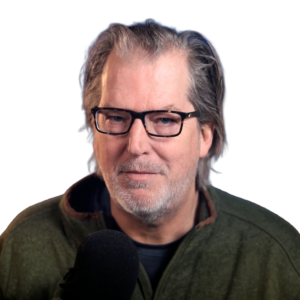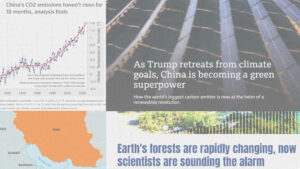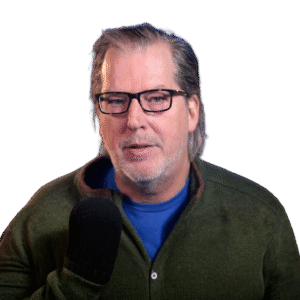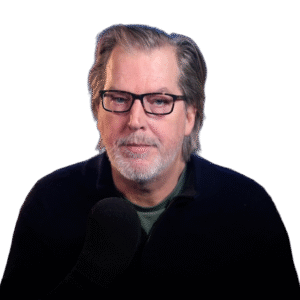
#100 | Frankly
Ask Nate Anything 2025
Description
In today’s Frankly, Nate reads and responds to questions from viewers of the channel, offering reflections on a wide range of topics from current events, balancing fear and action surrounding often existential topics, green technology, and more. By directly addressing these questions, Nate aims to further unpack some of the nuances in the complex and expansive concept of The Great Simplification.
The goal of TGS is to build out a comprehensive outlook that connects the dots of energy, human-made systems, and Earth’s functioning ecosystems. By making clear the biophysical reality of our current predicament, this platform aims to explore not only what brought us to this point, but also what we can do as individuals, communities, and as a society to move towards a sustainable future that centers around the wellbeing of the planet and all of its inhabitants.
How do wealth inequality and disparate standards of living fit into the larger view of the superorganism? What is the relationship between AI and peak oil? How do you grapple with the sheer scope of this content, and the system-wide lens? What are some things you’re most concerned about in the world today, and what are peoples’ responses to those concerns?
In French, we have a motto that says that a simple drawing is often better than a long explanation. Jean-Marc Jancovici Carbone 4 President
That’s very understandable because with left atmosphere thinking, one of the problems is that you see everything as a series of problems that must have solutions. Iain McGilchrist Neuroscientist and Philosopher
We can’t have hundreds and hundreds of real relationships that are healthy because that requires time and effort and full attention and awareness of being in real relationship and conversation with the other human. Nate Hagens Director of ISEOF
This is the crux of the whole problem. Individual parts of nature are more valuable than the biocomplexity of nature. Thomas Crowther Founder Restor
Show Notes & Links to Learn More
Download transcript03:11 – The Strait of Hormuz and ‘the Spice’ | Frankly #61, Strait of Hormuz Factsheet
06:03 – Robert Sapolsky and the Keekorok Baboon Troop
08:15 – Peak Oil
09:00 – AI and fracking
09:55 – Permian Basin rig count
09:45 – Alberta shale, Montney shale, Duvernay shale
11:19 – Red Queen Effect
12:30 – IEA Energy and AI Report
18:40 – ‘Bend Not Break’ TGS series, metacrisis, ecological overshoot/Frankly on overshoot
21:45 – MIT Study: ChatGPT’s Impact On Our Brains
24:06 – Anhedonia
29:20 – 2000 Watt Society, Living Energy Farm / TGS with Alexis Zeigler from LEF







